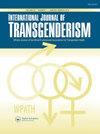在线性别确认资源的复杂性超过了患者的认知能力
Q1 Social Sciences
引用次数: 4
摘要
背景:越来越多的跨性别医疗保健覆盖导致更容易获得性别确认手术。考虑手术的患者始终在线访问医疗信息,以提高对手术选择、并发症、康复和变性后生活的了解。因此,国家卫生机构建议患者教育材料应达到六年级的阅读水平。本研究的目的是评估网上性别确认手术信息的复杂性。方法:以“变性手术”为关键词进行网络检索。对医疗保健和非医疗保健网站进行有关性别确认手术的相关文章评估。采用Flesch-Kincaid Grade Level、Gunning Fog Index、Coleman-Liau Index、Simple Measure of Gobbledygook Index和Automated可读性Index进行可读性分析。采用双尾z检验比较均数;p≤0.05为显著性。结果:共分析了87家网站的108篇文章。所有在线性别确认手术信息的平均可读性为11年级的阅读水平。卫生保健机构撰写的材料的阅读水平为12年级,而非卫生保健文章的阅读水平为10年级(p < 0.001)。男对女手术材料的阅读水平为12年级,显著高于女对男手术材料的11年级阅读水平(p = 0.04)。结论:网上关于性别确认手术的信息过于复杂,患者无法理解。信息材料应编写在较低的年级水平,以改善患者教育,知情同意和结果。本文章由计算机程序翻译,如有差异,请以英文原文为准。
Complexity of online gender confirmation resources surpass patient literacy
ABSTRACT Background: Increasing transgender health care coverage has resulted in easier access to gender confirmation surgery. Patients considering surgery consistently access medical information online to improve knowledge regarding surgical options, complications, recovery, and life after transitioning. As a result, national health institutes recommend that patient educational materials be written at a sixth-grade–reading level. The purpose of this study is to assess the complexity of online gender confirmation surgery information. Methods: An Internet search was performed using the key phrase “transgender surgery”. Health care and non–health care websites were evaluated for pertinent articles regarding gender confirmation surgery. Readability analyses were conducted using Flesch-Kincaid Grade Level, Gunning Fog Index, Coleman-Liau Index, Simple Measure of Gobbledygook Index, and Automated Readability Index. A two-tailed z test was used to compare means; significance was set at p ≤ 0.05. Results: A total of 108 articles from 87 websites were analyzed. The average readability for all online gender confirmation-surgery information was at an 11th-grade reading level. Materials written by health care entities were written at a 12th-grade–reading level compared to non–health care articles, which were written at a 10th-grade level (p < 0.001). Male-to-female surgery materials were written at a 12th-grade level, significantly higher than the 11th-grade reading level of female-to-male surgery materials (p = 0.04). Conclusion: Online information regarding gender confirmation surgery is written at a level that is too complex for patients to understand. Informational materials should be written at lower grade levels to improve patient education, informed consent, and outcomes.
求助全文
通过发布文献求助,成功后即可免费获取论文全文。
去求助
来源期刊

International Journal of Transgenderism
Social Sciences-Gender Studies
CiteScore
5.10
自引率
0.00%
发文量
0
期刊介绍:
International Journal of Transgenderism, together with its partner organization the World Professional Association for Transgender Health (WPATH), offers an international, multidisciplinary scholarly forum for publication in the field of transgender health in its broadest sense for academics, practitioners, policy makers, and the general population.
The journal welcomes contributions from a range of disciplines, such as:
Endocrinology
Surgery
Obstetrics and Gynaecology
Psychiatry
Psychology
Speech and language therapy
Sexual medicine
Sexology
Family therapy
Public health
Sociology
Counselling
Law
Medical ethics.
 求助内容:
求助内容: 应助结果提醒方式:
应助结果提醒方式:


